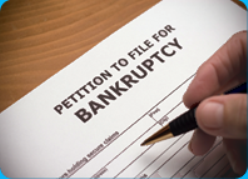 Bankruptcy is a very powerful tool for reorganizing and eliminating debt. However, there are some important limitations to be aware of when considering filing bankruptcy. First, bankruptcy does not discharge co-debtors liability for debt listed in the bankruptcy case. Debtors who file Chapter 13 bankruptcy are protected from collection from creditors outside the terms of the confirmed Chapter 13 plan. In addition, co-debtors are also protected from collection of the debt because of the co-debtor stay in Chapter 13 bankruptcy cases. However, once the debtor receives a discharge and the case is closed, the co-debtor stay lifts and the creditors can begin collection of the debt. This can create huge problems for co-debtors. Even though collection of the debt stops during the bankruptcy case the debt continues to accrue interest. At the end of the bankruptcy case the co-debtor may find the debt has grown tremendously during the pendency of the bankruptcy case. In addition, late fees may have accrued and the co-debtors credit score may have been adversely affected.
Bankruptcy is a very powerful tool for reorganizing and eliminating debt. However, there are some important limitations to be aware of when considering filing bankruptcy. First, bankruptcy does not discharge co-debtors liability for debt listed in the bankruptcy case. Debtors who file Chapter 13 bankruptcy are protected from collection from creditors outside the terms of the confirmed Chapter 13 plan. In addition, co-debtors are also protected from collection of the debt because of the co-debtor stay in Chapter 13 bankruptcy cases. However, once the debtor receives a discharge and the case is closed, the co-debtor stay lifts and the creditors can begin collection of the debt. This can create huge problems for co-debtors. Even though collection of the debt stops during the bankruptcy case the debt continues to accrue interest. At the end of the bankruptcy case the co-debtor may find the debt has grown tremendously during the pendency of the bankruptcy case. In addition, late fees may have accrued and the co-debtors credit score may have been adversely affected.
Second, certain types of debts cannot be discharged in bankruptcy. These include, but are not limited to, student loans, domestic support obligations like child support, alimony, and spousal maintenance, criminal fines and restitution, and some income taxes. In Chapter 13 cases, many of these debts receive priority status and are paid in full during the bankruptcy case. Student loans are paid only if money is available to the unsecured creditors. Any unpaid portion can be collected once the bankruptcy case is closed.
Third, bankruptcy discharges secured debt but in many instances it does not eliminate the liens against the property. This means that although a debtor can discharge a mortgage, eliminating personal liability for a mortgage, if they stop paying the mortgage creditor then the house will be foreclosed. The creditor cannot collect from the debtor personally but they can enforce their rights against the property that is collateral for the mortgage loan. In some instances second and third liens can be removed from real property.